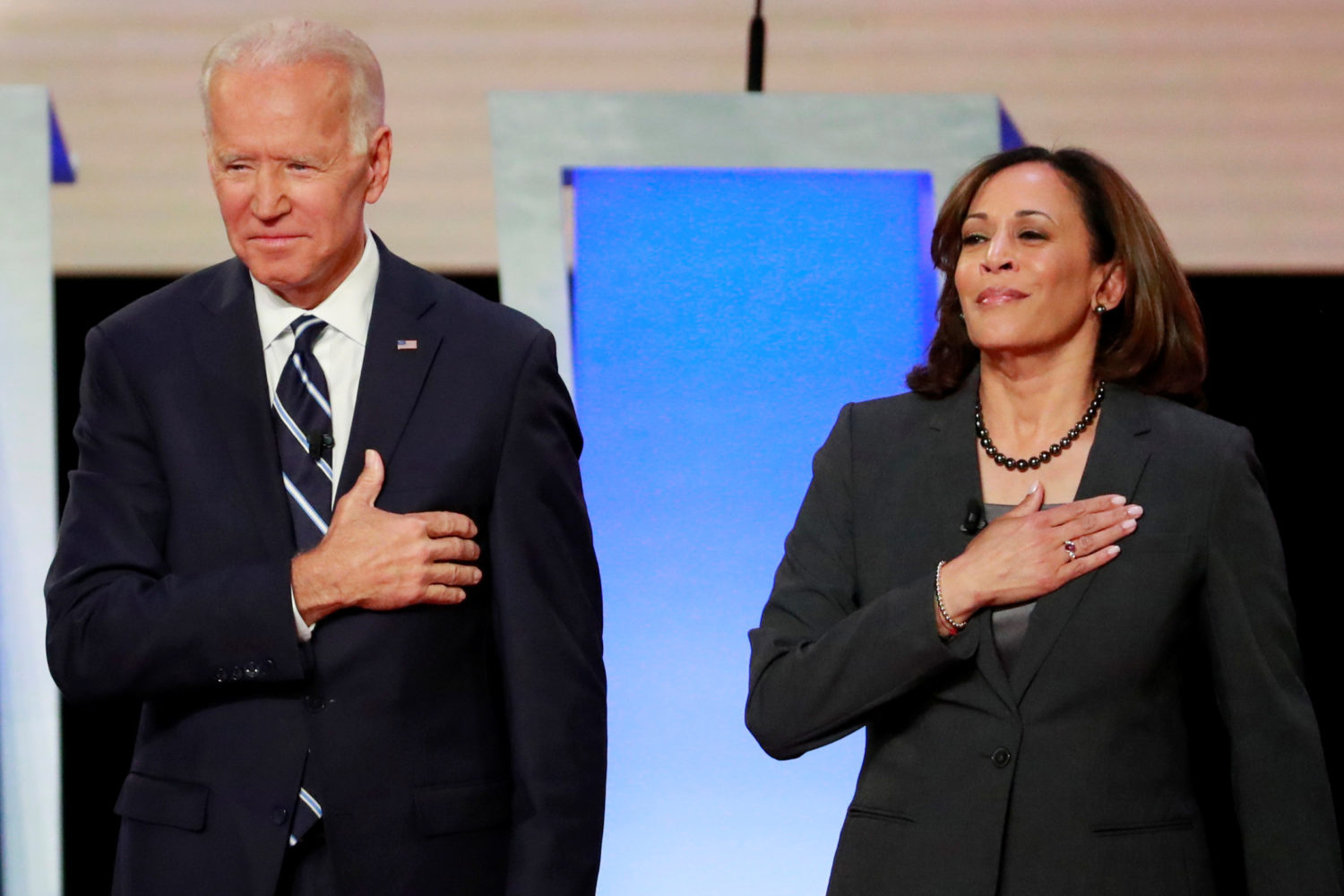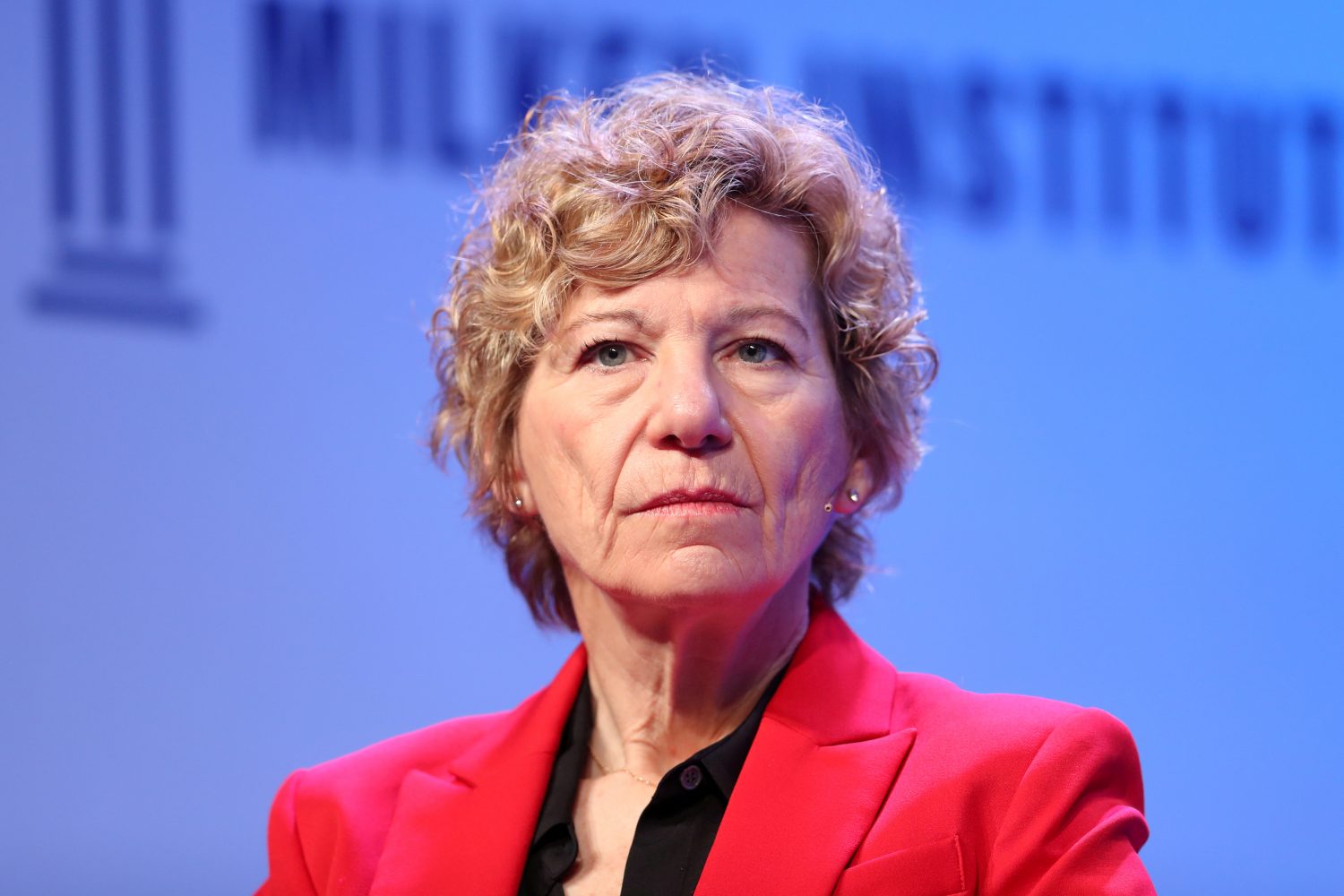
By James Oliphant and Joseph Ax
(Reuters) – Democratic presidential candidate Joe Biden on Tuesday picked Senator Kamala Harris as his choice for vice president, making her the first Black woman on a major-party U.S. presidential ticket and giving him a partner well prepared to go on the attack against Republican President Donald Trump.
With social unrest over racial injustice rocking the country for months, Biden had been under increasing pressure to select a Black woman as his running mate. Harris is also the first Asian-American on a major presidential ticket.
In Harris, a 55-year-old senator from California who made her own run for the White House, Biden gains an experienced politician already battle-tested by the rigors of the 2020 presidential campaign as they head into the final stretch of the Nov. 3 election.
Biden on Twitter called Harris “a fearless fighter for the little guy, and one of the country’s finest public servants.” Harris wrote on Twitter that Biden could “unify the American people because he’s spent his life fighting for us.”
Biden and Harris will appear together on Wednesday at an event in his hometown of Wilmington, Delaware, the campaign said.
Harris, who became only the second Black female U.S. senator in history when elected in 2016, will be relied on to help mobilize African Americans, the Democratic Party’s most loyal constituency. Four years ago, the first dip in Black voter turnout in 20 years contributed to Democrat Hillary Clinton’s upset loss to Trump.
Biden, whose foundering campaign was rescued by Black voters in South Carolina’s primary in February, needs their strong support against Trump. They will be crucial in battleground states such as Michigan, Pennsylvania and Wisconsin, where Trump narrowly prevailed in 2016, as well as Republican-leaning southern states like Georgia and Florida that polls show have become competitive this year.
Biden served as vice president for eight years under President Barack Obama, the first Black U.S. president.
Numerous Black leaders, including politicians who had themselves been considered as Biden’s running mate, emphasized the historic import of Harris’ selection.
“To see a Black woman nominated for the first time reaffirms my faith that in America, there is a place for every person to succeed no matter who they are or where they come from,” said U.S. Representative Val Demings, a Black woman who had been a contender.
Obama, perhaps the party’s most popular figure, praised Harris on Twitter: “She’s spent her career defending our Constitution and fighting for folks who need a fair shake.”
The Biden campaign notched its best grassroots fundraising day following the announcement, according to one of its digital directors, Clarke Humphrey.
Republicans immediately tried to portray Harris as a “radical” who embraces far-left priorities such as sweeping police reform and a ban on fracking.
During a White House briefing on Tuesday, Trump called Harris “the meanest, the most horrible, most disrespectful” and “most liberal” senator and said she was his “No. 1 draft pick” given her unsuccessful presidential campaign.
On a conference call the Trump campaign hosted for reporters, Republican Senator Marsha Blackburn asserted that Harris supports eliminating private insurance in favor of Medicare for All and said her selection reflects the “leftist takeover” of the party.
As a presidential candidate, Harris proposed a government-run system that would still allow private insurers to offer plans; she also supported a fracking ban. Biden has not embraced either proposal.
Harris, a former prosecutor and state attorney general in California, is known for her sometimes aggressive questioning style in the Senate, most notably of Brett Kavanaugh during his 2018 Supreme Court confirmation hearing.
As a presidential candidate, she also took Biden to task in a nationally televised debate over his past stances on mandatory busing for students as a means to desegregate schools. Some Biden advisers have told Reuters the attacks made them question whether she would be a trusted working partner because of her political ambitions.
While that exchange failed to boost her White House hopes, the Biden campaign will now look for her to train her fire on Trump and Vice President Mike Pence. Harris is scheduled to debate Pence on Oct. 7 in Salt Lake City, Utah.
The choice of a running mate has added significance for Biden, 77, who would be the oldest person to become president if he is elected. His age has led to speculation he will serve only one term, making Harris a potential top contender for the nomination in 2024.
Biden publicly committed to choosing a woman as his No. 2 in a March debate after discussing the matter with his wife Jill.
After the protests that erupted over the May 25 killing of George Floyd, a Black man, by a white policeman in Minneapolis, Biden’s search focused predominantly on candidates of color.
Harris will be confirmed as Biden’s running mate at the Democratic convention that begins on Monday, where Biden will also be formally nominated to challenge Trump.
A PROMINENT VOICE
Harris has become a key ally for Biden at a time when race has been thrust to the forefront of the campaign.
After Floyd’s death, she became a leading voice in the push for racial justice and police reform.
Harris came under criticism from some in the Black community and from progressive advocates for her record as California attorney general where, they say, she did not do enough to investigate police shootings and too often sided with prosecutors in wrongful conviction cases.
Her defenders say she has always been reform-minded – and point to her record in the Senate, where she has championed a police-reform bill and an anti-lynching bill, among other measures.
Harris, whose mother and father emigrated from India and Jamaica, respectively, was the first woman to serve as San Francisco’s district attorney and the first woman to serve as California’s attorney general.
Historically, the vice presidential nominee has taken the lead in criticizing the opposing ticket, although Trump has largely shredded that tradition. Brian Brokaw, a California political consultant who managed Harris’ campaigns for attorney general and Senate, said she fits that role well.
“She is someone who can really make Republicans quake in their boots,” Brokaw said.
(Reporting by James Oliphant and Joseph Ax, Additional reporting by Trevor Hunnicutt, Editing by Soyoung Kim, Jonathan Oatis and Sonya Hepinstall)












